Health
COVID-19: WHO urges Member States to share information on virus sequences

COVID-19: WHO urges Member States to share information on virus sequences
The World Health Organisation (WHO) on Wednesday, called on Member States to share COVID-19 sequences information to curb the spread of the virus globally.
WHO Director General, Dr Tedros Ghebreyesus, who made the call at a news conference at the UN heath agency’s headquarters in Geneva highlighted the importance of information sharing.
According to him, although virus sequencing is vital to detect and track new variants in the COVID-19 pandemic, sharing this information must be stepped up globally,
“Since the peak of the Omicron wave, the number of sequences being shared has dropped by more than 90 per cent, and the number of countries sharing sequences has fallen by a third.’’
The WHO chief recalled that the first sequence of SARS-CoV-2, the virus that causes COVID-19, was shared with the world three years ago, which enabled the development of tests and vaccines against the disease.
RELATED STORY: I Was An Orphan, I Never Knew My Father – Buhari Reveals
“We urge all countries now experiencing intense transmission to increase sequencing, and to share those sequences,” he said.
A WHO advisory group has published an assessment of the new Omicron subvariant XBB.1.5, which first emerged October 2022.
Sequences have been reported from 38 countries, though mainly from the United States.
“Based on its genetic characteristics and early growth rate estimates, XBB.1.5 may contribute to increases in case incidence,” the Technical Advisory Group on Virus Evolution (TAG-VE), said,
“To date, the overall confidence in the assessment is low, as growth advantage estimates are only from one country, the United States of America.”
Ghebreyesus also emphasised the importance of testing, which is critical both for tracking variants and ensuring at-risk people receive adequate care.
Since February 2022, the number of COVID-19 deaths reported each week has dropped by nearly 90 per cent, but they have been hovering at between 10,000 and 14,000 since mid-September.
“The world cannot accept this number of deaths when we have the tools to prevent them,” he said.
Last week, 11,500 people worldwide died from COVID-19, but “this number is almost certainly an underestimate given the under-reporting of COVID-related deaths in China,” he added.
Countries are also urged to provide better data on who is dying from the disease. Currently, just 53 out of 194 nations provide data that is disaggregated by age and sex.
Most deaths are among at-risk groups, with people 65 and older accounting for almost 90 per cent of all deaths reported during the last six months of 2022.
In addition, WHO chief celebrated the end of the Ebola epidemic in Uganda.
He also welcomed the adoption this week of a Security Council resolution extending cross-border aid delivery into northwest Syria from Türkiye for another six months.
Syria, Haiti and Malawi are among 31 countries battling devastating cholera outbreaks that are both more widespread and deadly than normal.
“While we have had large cholera outbreaks before, we have not seen such a large number of simultaneous outbreaks.
“The common denominator for many of these outbreaks is climate-related events, such as storms, floods and droughts.” the WHO chief.
Ghebreyesus appealed for more information from China regarding its ongoing COVID-19 surge.
The UN agency is working with the authorities to fill important gaps, including in understanding transition dynamics, the breakdown of increases or decreases in hospitalisations, virus sequencing, and differences in fatality rates between urban and rural areas.
COVID-19: WHO urges Member States to share information on virus sequences
Health
WHO Approves Single-Dose HPV Vaccine to Combat Cervical Cancer

The World Health Organization (WHO) has approved Cecolin®, a human papillomavirus (HPV) vaccine, for use in a single-dose schedule. This decision was announced in a statement by WHO on Friday, following the fulfillment of criteria outlined in its 2022 recommendations for off-label HPV vaccine use in single doses.
This approval marks a significant step towards enhancing global access to HPV vaccines, particularly in preventing cervical cancer. WHO Director-General Dr. Tedros Ghebreyesus emphasized the impact of this decision, noting the unique opportunity to eliminate cervical cancer.
“Unlike most cancers, we can eliminate cervical cancer along with the inequities it causes,” Ghebreyesus said. “By introducing a single-dose HPV vaccine option, we move closer to consigning cervical cancer to history.”
HPV is responsible for over 95% of cervical cancer cases worldwide, with the disease claiming a life every two minutes. The burden is especially severe in low- and middle-income countries, with 90% of cervical cancer deaths occurring in these regions. Of the 20 countries hardest hit by cervical cancer, 19 are in Africa.
Dr. Kate O’Brien, Director of WHO’s Department of Immunization, Vaccines, and Biologicals, highlighted the importance of the approval. “The addition of a single-dose HPV vaccine gives countries more options to reach girls, despite global supply shortages that have hampered distribution since 2018.”
The approval of Cecolin® follows data showing a rise in single-dose HPV vaccine coverage among girls aged 9-14, from 20% in 2022 to 27% in 2023. WHO estimates that over 6 million additional girls received the vaccine in 2023 due to the single-dose schedule.
To accelerate efforts to eliminate cervical cancer, countries and partners, including the Bill & Melinda Gates Foundation and UNICEF, have committed nearly $600 million in new funding. The WHO also prequalified an additional HPV vaccine, Walrinvax®, in August 2024, further supporting the global vaccine supply.
These advancements are expected to increase coverage and access to HPV vaccines, moving closer to WHO’s goal of having 90% of girls fully vaccinated by age 15 by 2030.
Health
“Nigerian Doctors in High Demand as 67% Work in UK – FG”

“Nigerian Doctors in High Demand as 67% Work in UK – FG”
The Federal Government has disclosed that 67 percent of Nigerian doctors currently practice in the United Kingdom. Coordinating Minister of Health and Social Welfare, Muhammad Pate, revealed this during an interview on Tuesday, highlighting the global demand for Nigerian-trained doctors and nurses.
Pate emphasized that the UK’s National Health Service (NHS) would face significant challenges if Nigerian doctors decided to withdraw and return home. This issue is part of the broader concern addressed by the newly approved National Policy on Health Workforce Migration, which aims to curb the mass exodus of health professionals from Nigeria.
Speaking on Channels Television’s *Politics Today* program, Pate noted the critical shortage of healthcare professionals in Nigeria, with only 55,000 licensed doctors serving a population exceeding 200 million. He reported that 16,000 doctors have left the country in the past five years, with about 17,000 being transferred.
Pate proposed that countries benefiting from Nigerian health professionals, like the UK, should invest in expanding training opportunities within Nigeria. “The continuous migration of health workers places a strain on our system. The UK will always need Nigerian doctors. But perhaps they should consider helping us train more, ensuring a sustainable flow of professionals,” he suggested.
Acknowledging the government’s inability to restrict the movement of its citizens, Pate stressed that the focus should be on creating a more favorable environment for health workers to stay and practice in Nigeria. “We cannot stop anyone from leaving, but we are committed to improving conditions to encourage health professionals to remain in the country and to attract those who have left to return,” he added.
Foreign
President Biden Tests Positive for COVID-19, Exhibits Mild Symptoms

President Biden Tests Positive for COVID-19, Exhibits Mild Symptoms
U.S. President Joe Biden has tested positive for COVID-19, the White House announced on Thursday. According to Press Secretary Karine Jean-Pierre., Biden is fully vaccinated and boosted, and is currently experiencing mild symptoms.
The positive test result came after Biden attended an event in Nevada. Following this, he will return to his private residence in Delaware to self-isolate while continuing to perform all his presidential duties remotely.
Biden’s physician reported that the president displayed upper respiratory symptoms, including a runny nose and a cough, in the afternoon. Although the results of a PCR confirmation test are pending, Biden has already received his first dose of the COVID-19 drug Paxlovid.
This marks the second time Biden, 81, has tested positive for COVID-19; he experienced mild symptoms during his previous infection two years ago. Given his age, Biden is at a higher risk for severe illness from the virus.
This latest positive test comes amid increasing scrutiny of Biden’s mental acuity and physical health, raising concerns about his fitness to run for a second term in the upcoming November presidential elections.
President Biden Tests Positive for COVID-19, Exhibits Mild Symptoms
-

 Business1 year ago
Business1 year agoNew Rates: ‘I borrowed money to finance this business…’ – Petroleum Marketer cries out over Non-supply of products by the NNPCL
-

 Health6 months ago
Health6 months agoOnly 58,000 doctors renewed licence out of 130,000 registered doctors – MDCN
-

 Entertainment3 months ago
Entertainment3 months agoBBNaija Season 9: TAMI Duo Evicted After Low Vote Count
-

 Defence & Security2 months ago
Defence & Security2 months agoOrganisers Demand IGP’s Dismissal Over Fatal Protest Crackdown
-

 Business2 years ago
Business2 years agoNew Naira Notes: We Have No Information On The Supreme Court Ruling – CBN
-

 Defence & Security2 months ago
Defence & Security2 months ago“Defence Chief Praises Strong Inter-Service Cooperation for Operational Successes”
-

 Opinion2 years ago
Opinion2 years agoAddressing Nigeria’s food security challenge through eco-friendly agriculture
-

 Entertainment2 months ago
Entertainment2 months agoBBNaija S9: ‘Radicals’ duo evicted from reality show


